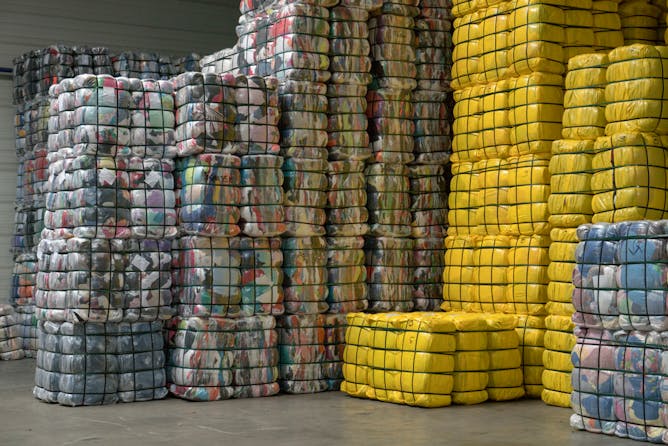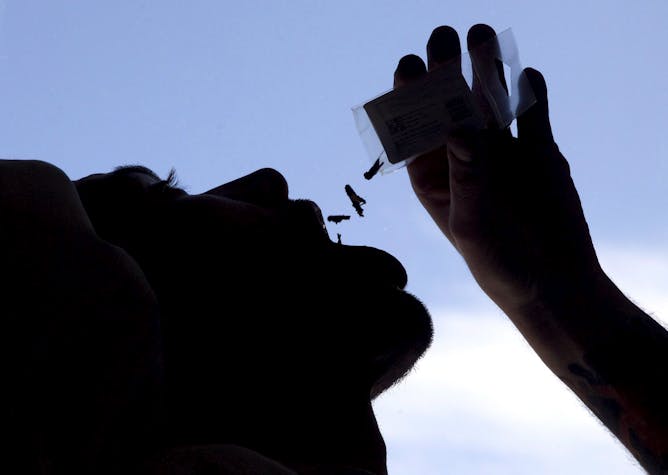|
We’ve all heard the saying: “You are entitled to your opinion, but you are not entitled to your own facts.” What happens, however, when the “facts” are manipulated by officials? Today in The Conversation Canada, criminologist Michael Arntfield of Western University takes a hard look at the practices police forces use to make their crime stats look better than they really are.
Yasmin Jiwani of Concordia University has returned with an update on the deportation of Lucy Francineth Granados, a Montreal woman who was sent back to Guatemala last week. Prof. Jiwani says the deportation is a symbol of a larger problem of anti-immigrant sentiment in Canada.
Lost in the headlines of Donald Trump’s trade wars is a petty story about how the U.S. is treating some African nations. Garth Frazer of University of Toronto looks at how a little-known policy on shipping used clothes to Africa is being changed by the Trump administration.
And finally… Michael von Massow and Alfons Weersink of the University of Guelph look at our increasing interest in alternate protein sources. Mmm….bugs.
Regards,
|

Police tape is shown in this May 2017 photo. Are Canadian police forces using an array of imaginative methods to inflate their solved crime rates?
THE CANADIAN PRESS/Graeme Roy
Michael Arntfield, Western University
Police forces use widespread and often dubious practices to inflate their solved crime rate. Here's how, and why, they do it, according to an expert on violent crimes and serial offenders.
|

People arrived at the Immigration Detention Centre in Laval, Que., shortly after 3 a.m. on April 13 to protest the deportation of Lucy Francineth Granados. She was deported to Guatemala, accompanied by two Canada Border Services Agency officials and a doctor.
(Solidarity Across Borders)
Yasmin Jiwani, Concordia University
Montreal resident Lucy Francineth Granados was deported to Guatemala last week. Media representations play an important role in these situations and exert much power over how we imagine our nation.
|

Stacks of used clothing are seen in this African warehouse. The U.S. is retaliating against countries that are restricting the import of American used clothing, a marginal industry for the U.S. but a critical one for some African nations.
(Shutterstock)
Garth Frazer, University of Toronto
The top U.S. foreign policy goals in Africa evidently no longer relate to human rights or democratic freedoms, but to protecting tiny, marginal American industries.
|

Production facility manager Derek Delahaye eats roasted crickets at the Entomo Farms cricket processing facility in Norwood, Ont., in 2016. Bugs are a diet staple in most parts of the world. Will Canadians join the masses in their search for alternate sources of protein to meat?
THE CANADIAN PRESS/Fred Thornhill
Michael von Massow, University of Guelph; Alfons Weersink, University of Guelph
Canadians are increasingly looking to alternatives to meat to get their protein. Pulses like lentils and chickpeas are becoming more popular. Will insects find a way onto our plates too?
|
Politics
|
-
Chryl N. Laird, Bowdoin College
Getting to the White House would mean overcoming issues of race and gender.
|
|
Arts
|
-
Stewart Maganga, Catholic University of Malawi
"What's Going On" remains relevant today. Even now its plaintive lyrics speak eloquently about a post-9/11 world that's upside down.
|
|
Culture + Society
|
-
Linda Wight, Federation University Australia
In the much awaited second season of the TV series, Offred is more openly defiant than she was in Margaret Atwood's novel. Still, the first two episodes remain true to the themes of Atwood's book.
|
|